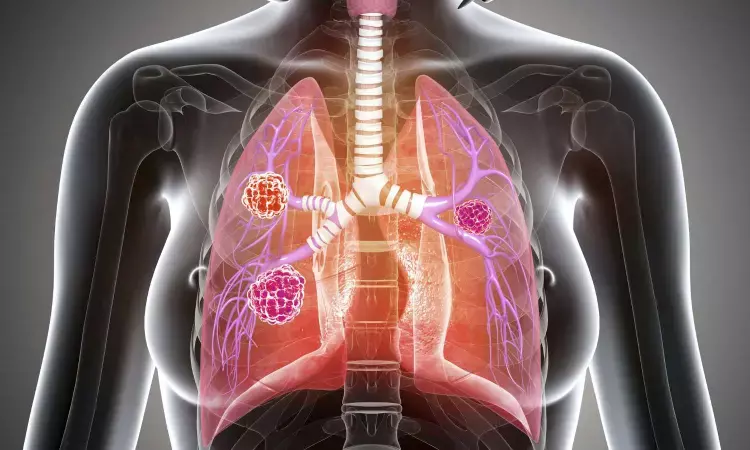- Home
- Medical news & Guidelines
- Anesthesiology
- Cardiology and CTVS
- Critical Care
- Dentistry
- Dermatology
- Diabetes and Endocrinology
- ENT
- Gastroenterology
- Medicine
- Nephrology
- Neurology
- Obstretics-Gynaecology
- Oncology
- Ophthalmology
- Orthopaedics
- Pediatrics-Neonatology
- Psychiatry
- Pulmonology
- Radiology
- Surgery
- Urology
- Laboratory Medicine
- Diet
- Nursing
- Paramedical
- Physiotherapy
- Health news
- Fact Check
- Bone Health Fact Check
- Brain Health Fact Check
- Cancer Related Fact Check
- Child Care Fact Check
- Dental and oral health fact check
- Diabetes and metabolic health fact check
- Diet and Nutrition Fact Check
- Eye and ENT Care Fact Check
- Fitness fact check
- Gut health fact check
- Heart health fact check
- Kidney health fact check
- Medical education fact check
- Men's health fact check
- Respiratory fact check
- Skin and hair care fact check
- Vaccine and Immunization fact check
- Women's health fact check
- AYUSH
- State News
- Andaman and Nicobar Islands
- Andhra Pradesh
- Arunachal Pradesh
- Assam
- Bihar
- Chandigarh
- Chattisgarh
- Dadra and Nagar Haveli
- Daman and Diu
- Delhi
- Goa
- Gujarat
- Haryana
- Himachal Pradesh
- Jammu & Kashmir
- Jharkhand
- Karnataka
- Kerala
- Ladakh
- Lakshadweep
- Madhya Pradesh
- Maharashtra
- Manipur
- Meghalaya
- Mizoram
- Nagaland
- Odisha
- Puducherry
- Punjab
- Rajasthan
- Sikkim
- Tamil Nadu
- Telangana
- Tripura
- Uttar Pradesh
- Uttrakhand
- West Bengal
- Medical Education
- Industry
Risk-based lung cancer screening more cost-effective than age, smoking history-based screening

An analysis of lung cancer screening methods found that risk-based lung cancer screening was more cost-effective than age and smoking history-based screening methods. The analysis is published in the Annals of Internal Medicine.
In 2021, the U.S. Preventive Services Task Force (USPSTF) issued their updated recommendation on lung cancer screening that lowers the starting age from 55 to 50 years and the minimum cumulative smoking exposure from 30 to 20 pack-years (categorical age-smoking strategies). However, prior studies suggest that risk-based lung cancer screening that defines screening eligibility based on personal lung cancer risk scores using validated prediction models averts more lung cancer deaths and results in fewer radiation-related deaths than categorical age-smoking strategies.
A team of researchers for the National Cancer Institute (NCI)-sponsored consortium, Cancer Intervention and Surveillance Modelling Network (CISNET) Lung Group used data from the National Lung Screening Trial to evaluate and compare the cost-effectiveness of risk model–based lung cancer screening strategies versus the USPSTF recommendation and to explore optimal risk thresholds.
The CISNET Lung group previously helped the decision-making of USPSTF on their recommendation on the national lung cancer screening guidelines in 2013 and 2021 through a comparative modeling approach used in this study. The data showed that risk-based screening was associated with more quality-adjusted life-years (QALY) and cost-savings compared with categorical age-smoking strategies. The authors note that risk model–based screening strategies were consistently more cost-effective than the 2021 USPSTF recommendation under varying modeling assumptions, including when a minimum 5-year life expectancy was included as an eligibility criterion and when imperfect adherence was implemented.
Reference:
Dr Kamal Kant Kohli-MBBS, DTCD- a chest specialist with more than 30 years of practice and a flair for writing clinical articles, Dr Kamal Kant Kohli joined Medical Dialogues as a Chief Editor of Medical News. Besides writing articles, as an editor, he proofreads and verifies all the medical content published on Medical Dialogues including those coming from journals, studies,medical conferences,guidelines etc. Email: drkohli@medicaldialogues.in. Contact no. 011-43720751


